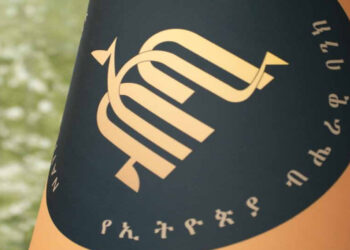Today, Prime Minister Abiy Ahmed addressed the Ethiopian Parliament, where he faced numerous questions from lawmakers about the country’s current challenges and the impending ratification of a nearly one trillion Birr federal budget bill.
Lawmakers expressed their concerns about the delays and budget overruns in key corridor projects in Addis Ababa, the effectiveness of current management strategies, and the high inflation rate. One MP questioned the government’s commitment to holding corrupt officials accountable.
Despite a tough year marked by regional crises, Prime Minister Abiy highlighted some successes. He pointed out that Ethiopia has not taken any commercial loans since he took office six years ago and has reduced the external debt to GDP ratio to 17.5%. He also noted a significant reduction in the tax deficit, which has been halved to 2.7% of GDP this year. However, he acknowledged that contraband trade, tax evasion, and fraud are major obstacles to mobilizing domestic taxes to fund the budget.
The Prime Minister attributed limitations in Ethiopia’s export trade to the security crisis in the Red Sea corridor, with goods and services exports recorded at 10 billion dollars in the 2023/24 fiscal year. He reported that the balance of payments showed 23 billion dollars in earnings, including 6.5 billion dollars from remittances and three billion dollars from foreign direct investment (FDI).
Prime Minister Abiy acknowledged the need for improvements in the financial sector but praised progress in financial inclusion. He highlighted the presence of 31 commercial banks with thousands of branches and a Non-Performing Loan (NPL) ratio below the global average of five percent. He also mentioned that over 80% of credit is allocated to the private sector.
The Prime Minister noted that the federal government has foregone 10 billion Birr from duties on imported food items. He also presented a positive picture of the industrial sector, reporting a 10.1% growth rate in the fiscal year, despite contrasting findings from the UNDP. He credited successes in cement manufacturing and the establishment of free trade zones for this achievement.
However, many manufacturers face a different reality. They contend with security concerns, foreign currency shortages, frequent utility blackouts, and excessive bureaucratic red tape, which hinder their progress. With many factories operating at only 20% capacity, the manufacturing sector’s contribution to GDP declined by 1.5% last year.
Prime Minister Abiy mentioned that Ethiopia might receive 10.5 billion dollars in external assistance following a deal with the IMF to push for further fiscal and monetary reforms. He claimed that the reform agenda pursued over the past five years has brought Ethiopia’s GDP to 205 billion dollars, a size equal to the combined economies of six regional countries.
He also expressed frustration with legislators’ reluctance to pass an asset seizure bill, which he argued is a necessary tool to combat corruption.
Despite the challenges and debates, Ethiopia’s federal legislative house unanimously ratified the budget bill of 971.2 billion Birr, which requires domestic borrowing of 325.6 billion Birr to cover the budget deficit.
Source: Addis Fortune





















